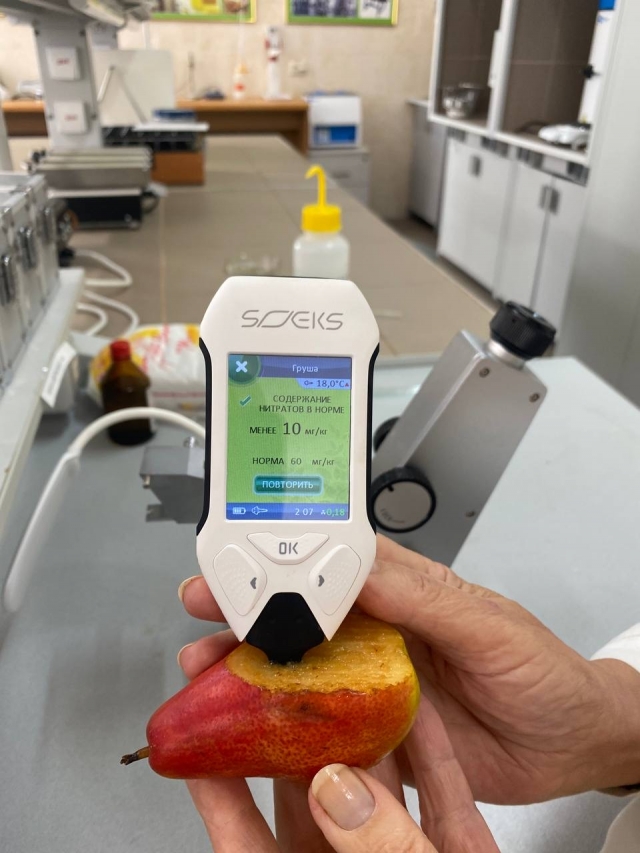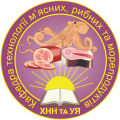Студенти факультету харчових технологій та управління якістю продукції АПК НУБіП України діляться своїми враженнями навчання в дистанційному форматі
«Освіта – скарб; праця – ключ до нього»
(П'єр Буаст)
З 19 вересня поточного року на факультеті харчових технологій та управління якістю продукції АПК почалося дистанційне навчання для студентів 2 та 3 курсу. Почавши навчатися у серпні, студенти змогли понад місяць відчути справжнє навчання в очному форматі та отримати багато позитивних вражень від студентського життя. Як показав час, саме така практика дозволяє зрозуміти всі особливості навчання в університеті. Студенти поринули у неймовірну атмосферу університетського життя. Місяць очного навчання промайнув, як один день, у постійному динамічному русі, в участі у різних культурно-масових заходах під керівництвом деканату і студентської організації.
Вивчати різні дисципліни інколи вдавалося у змішаному форматі, хоча студенти вже були переведені на дистанційне навчання, тому що деякі лабораторні роботи потребували виконання в лабораторних умовах з використанням лабораторного обладнання.
Так, студенти 3 курсу 1, 2 та 3-ї груп під час вивчення дисципліни «Технологія консервування плодів та овочів» виявили бажання вийти на очне виконання лабораторних робіт за темою «Визначення вмісту сухих речовин в плодах та овочах», «Визначення вмісту нітратів у продуктах рослинного походження». Кожен студент приніс домашні або куплені в магазині плоди та овочі, які використовували для досліджень на вміст сухих речовин та нітратів.




Здивували студентів деякі результати по вмісту нітратів, які були на межі допустимих норм, а в деяких овочах та фруктах навіть їх перевищували. Для проведення таких досліджень використовували портативний прилад Ековізор F4. Також кожен студент опанував методику і провів визначення cухих речовин в наявних плодах та овочах за допомогою сучасного рефрактометра марки ABBE 2WAJ






За програмою залишалась ще одна лабораторна робота за темою "Технохімічний контроль на переробних підприємствах". Визначення якості прянощів, солі і цукру», яку планували також виконати в офлайн форматі, проте війна внесла свої чергові корективи, і роботу довелося виконувати дистанційно. Але всі три групи студентів з цією задачею успішно справились завдяки попередній підготовці до занять. У кожній групі студенти підготували зразки кухонної солі, цукру та гвоздики, які є основними рецептурними компонентами при консервуванні. Під керівництвом доц. Юлії Крижової дистанційно перед камерою студенти готували розчини солі, цукру та визначали такі органолептичні показники як смак, розчинність у воді, наявність або відсутність осаду, механічних або сторонніх домішок, розтирали у ступці сіль для визначення запаху та кольору, визначали сипкість цукру-піску та запах після витримки цукру протягом години у щільно закритих банках. Якість гвоздики на свіжість визначали у прозорій склянці з водою, опустивши туди певну кількість цілих екземплярів гвоздики, та визначаючи кількість екземплярів, які плавали горизонтально, встановлюючи відсоток несвіжої гвоздики. Отримані результати порівнювали з вимогами діючої на них нормативно-технічної документації.



Студенти 2 та 3 курсу факультету харчових технологій та управління якістю продукції АПК, обговорюючи проблеми сучасного змішаного навчання в НУБіП України, поділилися своїми враженнями.
Катя Горбань, студентка 2 курсу: «Особисто мені більше подобається очний формат навчання. Практичні заняття в лабораторіях надзвичайно згуртовують студентів та більше заохочують до вивчення нового матеріалу. Сама атмосфера студентського життя також дуже веселить та мотивує рухатись далі. Для мене дистанційне навчання дорівнює самоосвіті, незважаючи на те, що викладачі проводять пари доволі цікаво. Проте, на жаль, в реаліях сьогодення, ми не можемо повноцінно вийти на очне та насолодитись нашими студентськими роками у повній мірі».
Софія Шарандак, студентка 2 курсу: «Майже місяць, як ми навчаємося дистанційно. Усі студенти вже адаптувалися до такої форми навчання. Я бачу як багато переваг, так і недоліків. Насправді складно замінити очне навчання: регулярна зустріч з викладачами; живе спілкування; змога побачити роботу приладів, виконати досліди та інше. Тим не менш, викладачі намагаються викласти навчальний матеріал на високому рівні, використовуючи різні онлайн навчальні платформи, відеоматеріали, презентації. Також, один з плюсів є доступ до матеріалів 24/7 на платформі Ельорн. Я можу з легкістю повернутися до незрозумілого матеріалу та розібратися».
Юлія Булавньова студентка 3-1: «Мені дуже подобається очне навчання, сам його процес, відчувати себе студентом, у якого ще все попереду. Проводити дуже цікаві практичні заняття. Звичайно, з теперішньою ситуацією, ми змушені навчатися дистанційно, однак нам це все рівно не заважає цікаво проводити свої заняття в домашніх умовах. Звичайно, всього не зробиш, однак завдяки цим практичним навичкам можна дізнатися багато корисного для самого себе».
Каріна Косяк, студентка 3-2: «На факультеті харчових технологій ми вивчаємо різноманітні дисципліни. Хочу розказати вам про одну з них –«Технологія консервування плодів та овочів». Це дисципліна, на лабораторних заняттях якої ми тестуємо овочі та фрукти, визначаючи якісні показники. На одній із таких лабораторних робіт ми досліджували огірки, солодкий перець, груші, яблука, виноград на вміст сухих речовин та вміст нітратів у досліджуваних зразках. Наш чудовий викладач Крижова Юлія Петрівна дає нам можливість проводити цікаві дослідження. Але це не просто лабораторна робота, а неодмінний досвід для моєї професії в майбутньому».
Анастасія Касянчик, студентка 3-1: «Я хочу подякувати нашим викладачам за таку можливість проводити навчання з цікавістю та користю. Виявляється, що дистанційні заняття також можуть бути цікавими та надихати студентів на ще більш інтенсивне навчання».


Погляди студентів можуть різнитися між собою, але найголовніше - в будь-якій ситуації мати можливість продовжувати навчання.
Чекаємо з нетерпінням на нашу перемогу, щоб мати можливість знову в очному форматі поринути в цікавий світ науки та повноцінного студентського життя.
Слава нашим непереможним ЗСУ!
Слава Україні!
Павло Паламарчук, староста першої групи 3-го курсу,
Юлія Крижова, доцент кафедри технології
м’ясних, рибних та морепродуктів
